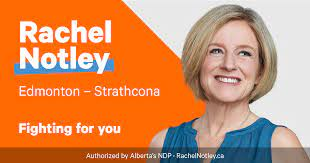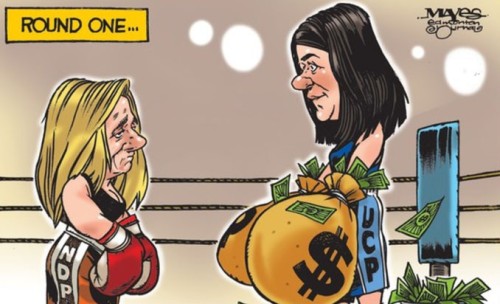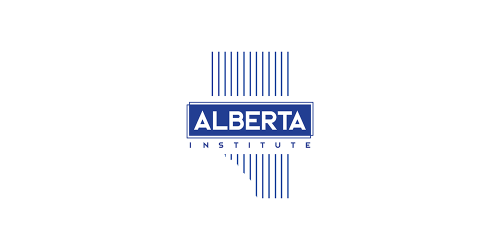If there were any doubts about who would be the NDP nominee for the riding they were put to rest on Saturday when Rachel Notley accepted the NDP nomination. Edmonton has long been an NDP stronghold, one the NDP is not taking for granted. In addition the NDP plans to set up a base in Calgary to bolster support there and southern Alberta. There's not that many weeks left to campaign so as both a candidate and leader of the provincial NDP Rachel Notley will probably be working overtime on the hustings until election day.
NDP Leader Rachel Notley says it would follow British Columbia in making to residents if the party is elected in the spring.The NDP says it would cover oral hormone pills, contraceptive injections, copper and hormonal intrauterine devices, subdermal implants and Plan B, also known as the morning-after pill.
The federal government’s Bill C-11 is officially known as the Online Streaming Act, but could probably be more accurately described as the Internet Censorship Bill.
This Bill is currently making its way through the federal Parliament in Ottawa and it could soon become the law of the land.
The Liberals and the NDP claim that the Bill will ensure Canadian content creators are compensated properly and that large online platforms and streaming services contribute to creating more Canadian content.
They maintain that regulation is needed to ensure Canadian content is at the forefront, and not taken over by large US-based platforms.
Canadian taxpayers probably shouldn’t be forced to fund Canadian content that no one bothers watching, but that isn’t even the real problem with the Bill - it’s much more sinister than that.
What you are allowed to see when you go online could soon be decided by the government.
The Bill opens the door to regulating not just corporate media, but user-generated content too - everything from TikTok videos to podcasts, audiobooks to citizen journalism.
The Bill gives authority to the Canadian Radio-television and Telecommunications Commission (CRTC) to treat content creators as broadcasters and regulate user-generated content as a program.
The scope of the Bill is massive.
It basically takes the old regulatory system for TV and radio from before the internet was even invented, and applies those stringent rules to almost all audio-visual content.
Now, here’s where things get interesting.
Despite the Bill explicitly handing over control of user-generated content to the CRTC, the CRTC says that they actually have no interest in regulating this kind of content.
The Liberal government backs up the CRTC, saying that isn’t the point of the Bill.
Ok, but then, if that’s the case, why haven’t the government simply narrowed the scope of the Bill and removed the language that allows for abuse of power?
Groups like the Alberta Institute, and others across Canada, have been working against this Bill for over a year.
The federal government has had the opportunity to fix these issues.
Instead, their response is simply: “Just trust us.”
That’s not good enough.
Even worse, the Liberals say criticizing the bill is part of an organized campaign of “misinformation”.
What could possibly go wrong when they’re in charge of what you see and hear?
This rule could be used to regulate “misinformation”.
Of course, they’d the be the ones who get to decide whether something is “misinformation” or not.
Governments rarely ignore their own sweeping powers - Emergencies Act, anyone?
But, even if you believe the *current* government when they say they definitely, totally, absolutely, won’t ever use these new powers… do you trust that no *future* government will, either?
In a free market, the art and the content that people want to consume is the art and content that succeeds.
Government control of what you see when you go online is an infringement on freedom of expression, but also on the free market.
This isn’t about making Netflix pay their fair share, or about increasing Canadian content; it’s about regulating the internet and controlling what is accessible to viewers.
In this day and age, the internet is a critical part of freedom of expression.
Online content should never be regulated.
Canadians must be the sole deciders of what content they consume.
Not the government.
If you agree, please consider signing our petition:
| STOP GOVERNMENT CENSORSHIP |
Please also consider forwarding this email to your friends, family, colleagues, and every Canadian, to help stop this erosion of our freedoms.
Regards,
The Alberta Institute Team







